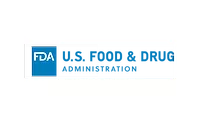Inspections of small businesses under the FSMA Intentional Adulteration Rule to begin March 2021

Today, the U.S. Food and Drug Administration announced that routine inspections of small businesses to verify compliance with the FDA Food Safety Modernization Act’s (FSMA) Intentional Adulteration (IA) rule will begin in March 2021.
The FSMA IA rule is designed to address hazards that may be intentionally introduced to foods, including by acts of terrorism, with the intent to cause wide scale public health harm. Food facilities covered by the rule are required to develop and implement a food defense plan that identifies vulnerabilities and puts in place mitigation strategies to address those vulnerabilities. The rule was finalized in 2016 and compliance dates are being phased in depending on business size. The compliance date for small businesses (those with fewer than 500 employees) is July 27, 2020.
Last year we announced that inspections of large businesses under the IA rule would begin in March 2020 following a compliance date of July 2019 for those businesses. At that time we felt that it was important to provide additional time for industry to benefit from certain guidance, training and other tools that FDA issued last year. In the time since that announcement, COVID-19 has required the FDA to postpone most routine inspections, including those of large businesses under the IA rule, because travel restrictions, social distancing and other public health measures have made them temporarily impractical to conduct.
Recognizing the unique situation COVID-19 has created for both industry and regulators, the FDA intends to begin routine inspections of small businesses under the IA rule in March 2021. This approach, consistent with our approach regarding IA inspections of larger businesses, will help facilitate industry’s continuing efforts to put in place measures that will protect public health while allowing the FDA additional time to conduct outreach to stakeholders.
When routine inspections begin for facilities covered by the IA rule they will consist of food defense plan “quick checks” during regularly scheduled food safety inspections. These “quick checks” allow FDA to verify that the facility has satisfied the basic requirements of the rule while also providing us with an opportunity to “educate while we regulate.” During the “quick check” FDA investigators will ask the owner or operator of the facility a series of questions such as “do you have a food defense plan?” and may provide some educational materials.
More information about food defense plans, the upcoming compliance date, draft guidance, and other resources are available in an updated conversation piece featuring FDA food defense experts Ryan Newkirk and Jon Woody.
Looking for quick answers on food safety topics?
Try Ask FSM, our new smart AI search tool.
Ask FSM →








